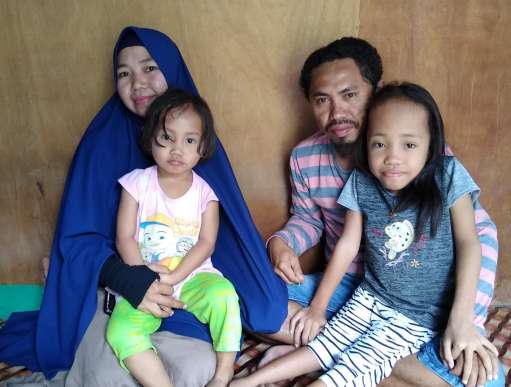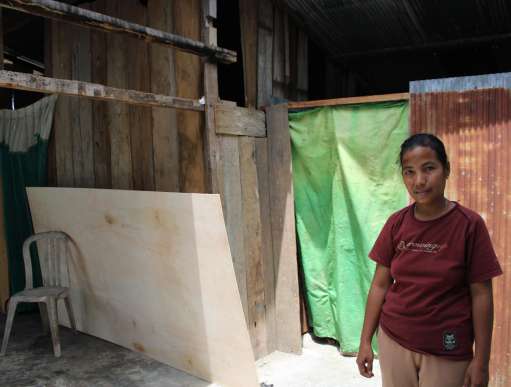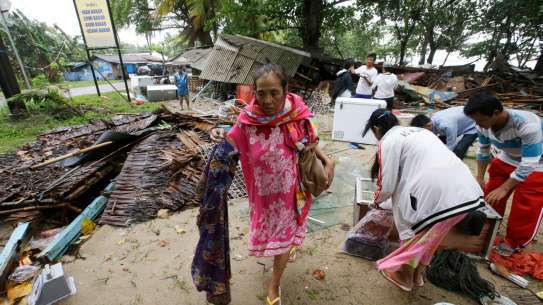At least 430 people have been killed, 14,000 injured and 33,000 displaced after a tsunami hit coastal towns and tourist beach resorts on Indonesia’s Sunda Strait.
The giant tidal waves, triggered by a volcanic eruption, struck without warning on Saturday 22 December, uprooting trees, damaging buildings and roads, and destroying homes.
Our local partner Yakkum Emergency Unit (YEU) has deployed a crisis team, including medical doctors and midwives, to help communities affected by the disaster in Rajabasa village, Lampung province.
The team is providing emergency medical relief and distributing clean water and rice, as well as blankets and basic hygiene supplies. They are setting up a public kitchen as they continue to assess the needs of displaced people, thousands of whom are living in temporary shelters.
As our partners work to save lives on the ground, we need your help.
Please donate to our Indonesia Tsunami Appeal today. All funds donated will be used to support tsunami relief efforts in Indonesia.
Photo credit: Achmad Ibrahim/AP/REX/Shutterstock.
Our thoughts and prayers are with all those whose lives have been thrown into turmoil by this latest disaster, which comes so quickly after September's tsunami and earthquake.
In recent months, Christian Aid’s partner YEU has been delivering essential supplies to more than 6,500 people affected by the previous tsunami and earthquake, which struck Indonesia in September. Watch the video to see the impact of your support for communities affected by the September disaster, and read more below.
How we are responding
In recent months, Christian Aid’s partner YEU has been delivering essential supplies to more than 6,500 people affected by the previous tsunami and earthquake, which struck Indonesia in September. Watch the video to see the impact of your support for communities affected by the September disaster, and read more below.
Our response in Central Sulawesi in numbers:
Our partner YEU continues to help survivors of this disaster in Central Sulawesi
11,463 people given access to water, sanitation and hygiene supplies:
- 98,800 litres of water distributed each day, on average
- 3,000 hygiene kits given to women and girl
- 30 public toilet units built
- 4 inclusive toilet units built
Shelter: 7,580 people
- 1,200 emergency shelter kits given
- 4 shelter management training sessions
- 600 solar panels handed out
- 108 temporary shelters given out
Health: 1,787 people
- Mobile health clinics run
- Training on sexual and reproductive health given to women and men
Protection: 269 people
- 3 sexual harassment counselling and treatment sessions
- 8 sexual harassment awareness training sessions
- Personal and social protection training sessions
What’s next for our work in Central Sulawesi?
In the coming months, we will continue to work with CWS and YEU in the recovery phase of the response in Donggala, Palu and Sigi. We aim to assist over 3,500 people with longer-term support, such as:
- WASH: Construction of gravity water systems, family latrines, inclusive latrines, hygiene promotion and awareness training
- Shelter: Construction of transitional shelters and inclusive homes
- Livelihoods: Provision of livelihood support through business capital, business plan development training and linking to the market
- Protection: Establishment of referral mechanisms
- Health: Training of health cadres, cervical and breast cancer screening (including raising awareness of the need for screening), provision of support to people living with HIV and training of Sexual and Reproductive Health and Rights
We are delighted to have a new local partner onboard, KARSA Institute. They have been working with the local community in Central Sulawesi for 15 years and through them, we will be strengthening our community engagement.
As part of a 10-month project with KARSA Institute, we will (among other things): support with shelter and public facilities for earthquake survivors; build earthquake-resistant education facilities for children; run livelihoods activities to help people restore and increase their income; promote a Survivor and Community Led Response (SCLR) to enable the community to handle future disasters in an independent and sustainable way.
'Praise be to God'
Nur Alifhya Erfani
Nur Alifhya Erfani (bottom right) is eight and lives with her parents and younger sister in Pantoloan Boya, Palu. Erfani is living with disabilities and is unable to walk, after suffering from polio at a young age. She attends local school where she often comes top of the class.
After their house was ruined in the earthquake, Erfani’s family was given a permanent inclusive shelter by Christian Aid’s partner YEU. These shelters are ear-marked for the most vulnerable survivors, including people living with disabilities, low-income households and single mothers.

Her mother said: 'On the day of the earthquake, our house was severely damaged, and we sought safety at a relative’s. My husband was invited to socialization [an awareness-raising event] by YEU in early July when he learnt about the organisation and the beneficiary selection process. YEU staff visited our damaged home for the assessment and few days later we found out that we qualified for the inclusive shelter and a latrine. Alhamdulilah. [Praise be to God].'
‘I could adapt the shelter to our needs and likes’
Listiawati, is 33 and lives with her husband and three children. On the day of the tsunami, Listiawati’s family ran to a nearby hill to find safety from the waves: they only had time to grab a few belongings. With their house damaged by the waves, the family relocated to a temporary camp.

Later on, the family were given a new transitional shelter by Christian Aid, our partner CWS and local organisation INANTA (who work alongside CWS). These shelters enable displaced families to relocate from camps, giving them somewhere more secure to live. They are given to the most vulnerable people who haven’t received any shelter support from the Indonesian government or other NGOs.
Each transitional shelter is earthquake proof and is built on the site of their damaged house or on the survivors’ land. The shelters can later be expanded by the owner, so that they become more permanent.
This project focuses on community participation. We place survivors at the centre, including them in the decision-making process, from the design to the implementation.
Listiawati’s family were able to adjust the design of the building. She said: “I am thankful for CWS and INANTA that I could adapt the shelter to our needs and likes.”
Christian Aid’s Moto Michikata, our humanitarian programme support officer for Indonesia, met Listiawati and her family. Moto said: 'Listiawati’s husband is the bread-winner for the family: he worked as a fisherman, but his boat was damaged, and his tools were washed away by the tsunami. So, in the next phase of our work, we will also be supporting the family on the livelihood project by providing tools and supporting Listiawati on income generation. This will help them with get back on their feet.'
